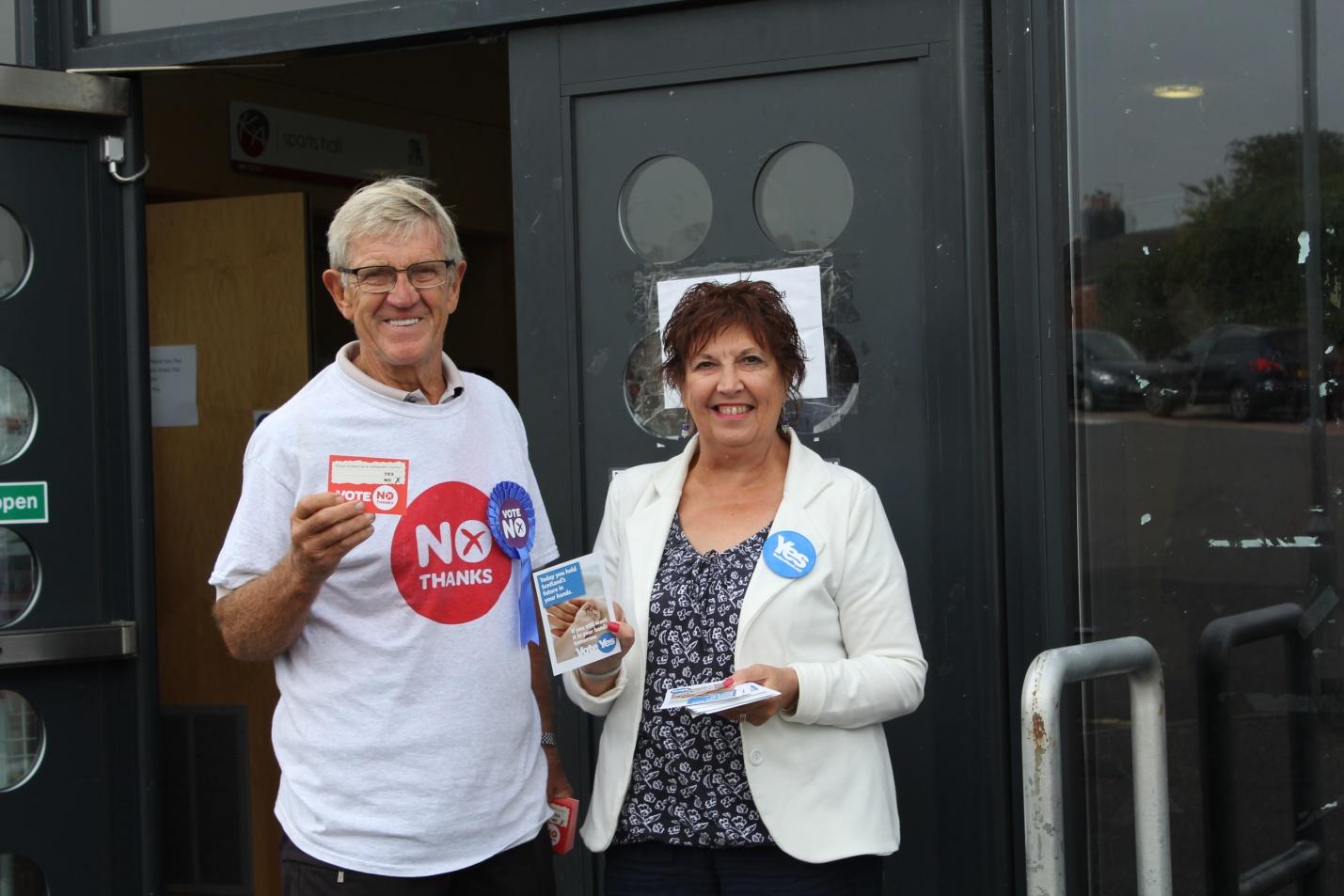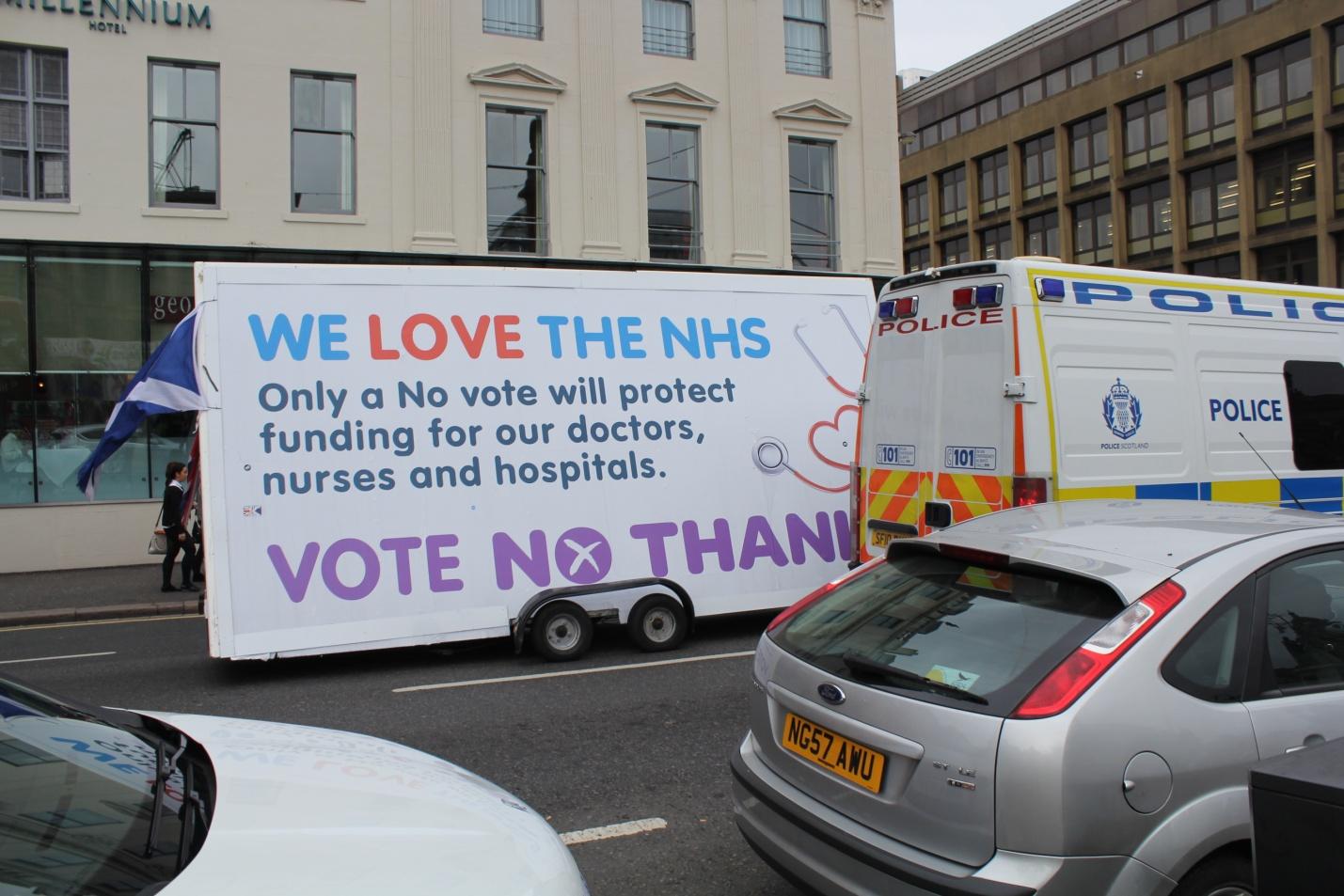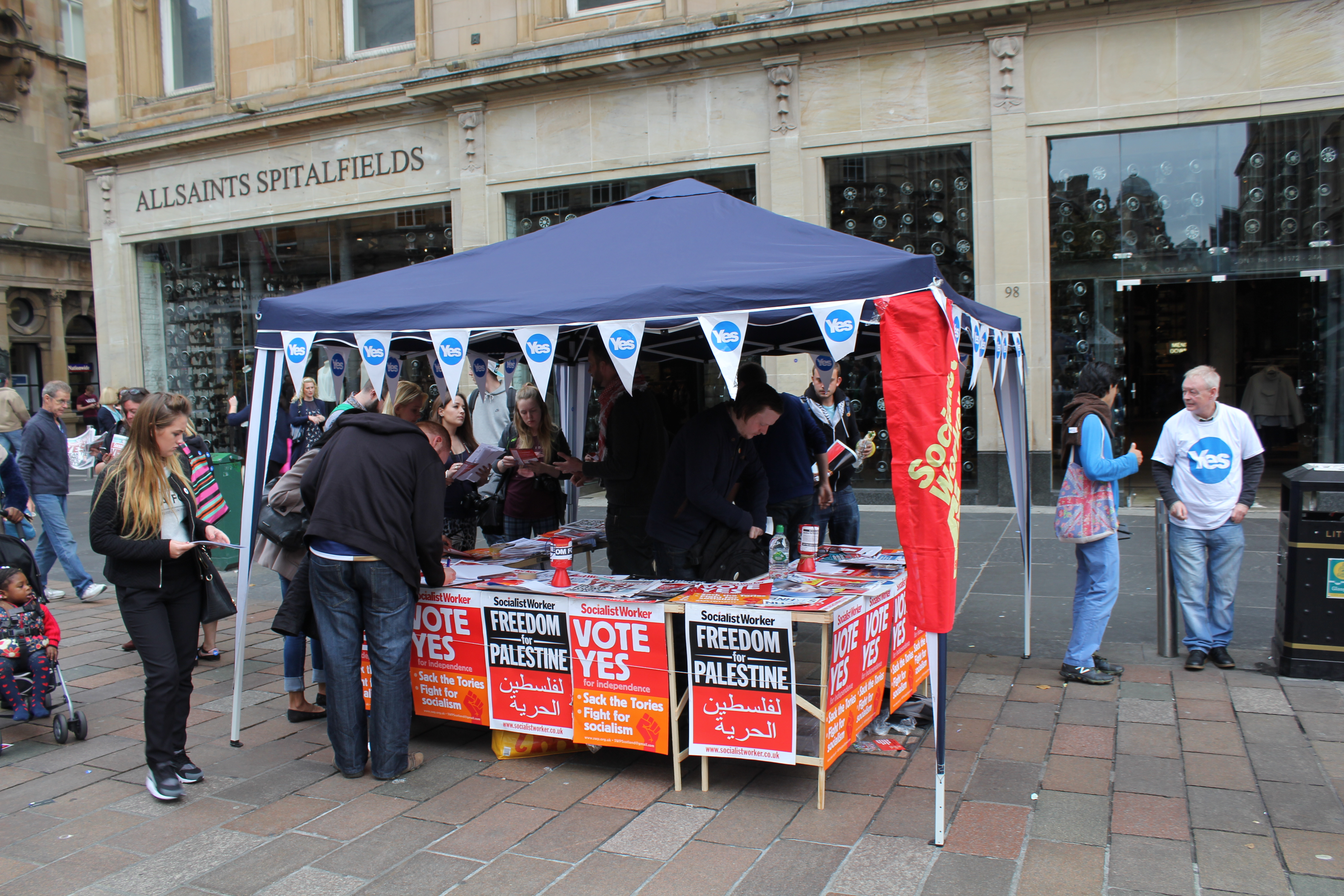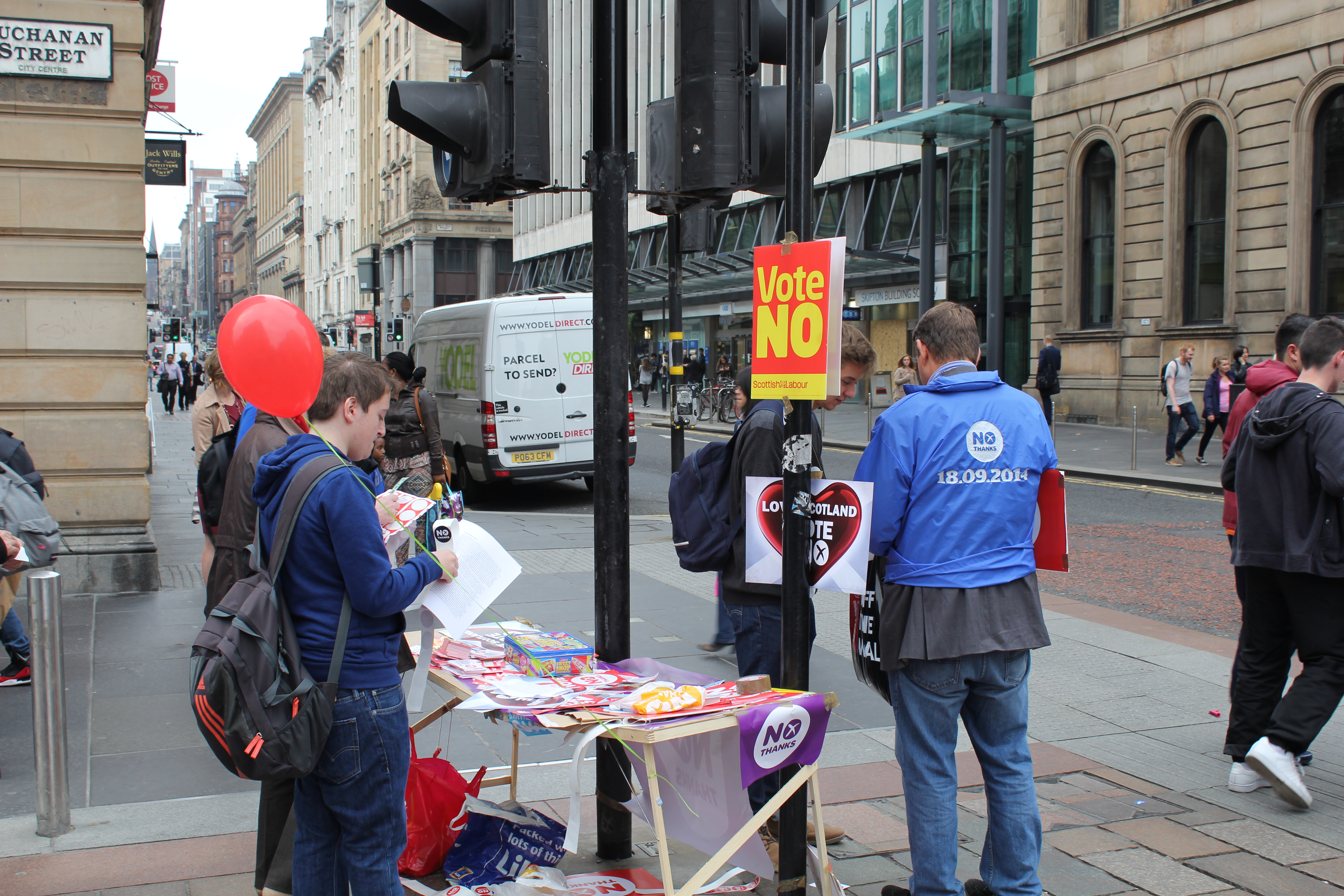Scotland Says “NO”
On Sept 18th the long awaited referendum on whether Scotland would become its own independent country or remain a part of Great Britain was held. Although the polls said that the vote was too close to call, there was a report that bookies were giving odds that “no” would win.
If anything can be said about the poll, it was that it was a remarkable turnout showing that when people feel their vote would be significant, they will come out and vote. Some areas had well over 90% of the registered population turning out. Glasgow was reported as turning out on 75% of its registered voters. Only 75%????? Only in an election like this would anyone say “ONLY 75%”. Since Glasgow was one of the 4 parts of the country that voted yes, some felt that the low turnout had cost the “yes” voters the election. However, even if the remaining 25% had all voted “yes” it would not have made a difference, although the vote would have been much closer. When it was all said and done, the vote was about 55% to 45% - a figure very close to one poll the night before the election.
The Scots showed the rest of the world how democracy works and whether one was a “Yes” or “No” voter the entire campaign was carried out free of violence and with high energy that marked the importance of the campaign to many. People standing outside the pools giving out “Yes” and “No” leaflets to voters were friendly and good natured as can be seen in this photo of two such workers in Ayrshire.

There was some egg throwing (but no one threw chickens) It did appear that debates on the television did get out of hand and of the ones that I saw, the two parties would start out quite pleasantly, but within minutes the moderator invariably lost control and the debaters looked as though they were going to come to blows.
After the votes were in, there were basically no riots, no ugliness except for minor episodes which looked more like stupid football rowdies after a game. Many Scots said they were very upset that one of these had been televised and it made the Scots look bad.
Although there were some signs saying “Better together” hoping for a “no” vote,

the “Yes” people seemed far more vocal and had more signs up in windows as can be seen in these windows in Inverness.

Cars too were painted with the Saltire and over it a “Yes” and the date – 18 September 2014 appeared painted on the hood (bonnet).

Even the statues of Sherlock Holmes and Hume in Edinburgh were wearing “Yes”.

Sherlock Holmes with a “Yes” sticker
Even at Culloden, a section of the country that voted “No”, flowers that had been laid at the Clan Donald stones had a “yes” wrapped around them,

While I was at the Culloden battlefield, there was a class of students, perhaps 16 years old or so, taking a tour of that historic landmark. The guide asked several questions of the students, one of which was whether or not they thought all the people fighting wanted to be there or not. There was a general “no” and the guide explained that many had been forced there by clan chiefs. The guide then asked “Why do you think the Jacobites supported Charlie. Several answers were given. Then he asked why do you think some of the clans supported the government? One student said “Better together?” A deadly silence fell over the group.
There have been a number of questions raised about conspiracies and the like, some recent revelations on the internet have ranged from the bizarre (the royal family are actually extra-terrestrial lizards) to ballot altering, deliberate miscounting and so on, but these seem not to be occupying as much time and space as say the question of Obama’s birthplace. The reports claimed 10 cases of “personation” that is where more than one person showed up to vote under the same name. Ten seems a remarkably small number. Some people were threatening to leave the country if the vote was “Yes”; others have felt they would leave now that it is “No”. As one person said on the television, it is sad to think that on the morning after the election that half of the population was unhappy with the way the vote went.
Win lose or draw the Scots can take pride in an election fraught with emotion that was carried out with a great deal of diplomacy and civility. The huge turnout went a long way to prove that when the members of electorate feel they can make a difference, they will turn out and vote.


TABLE OF CONTENTS
PAGE TWO